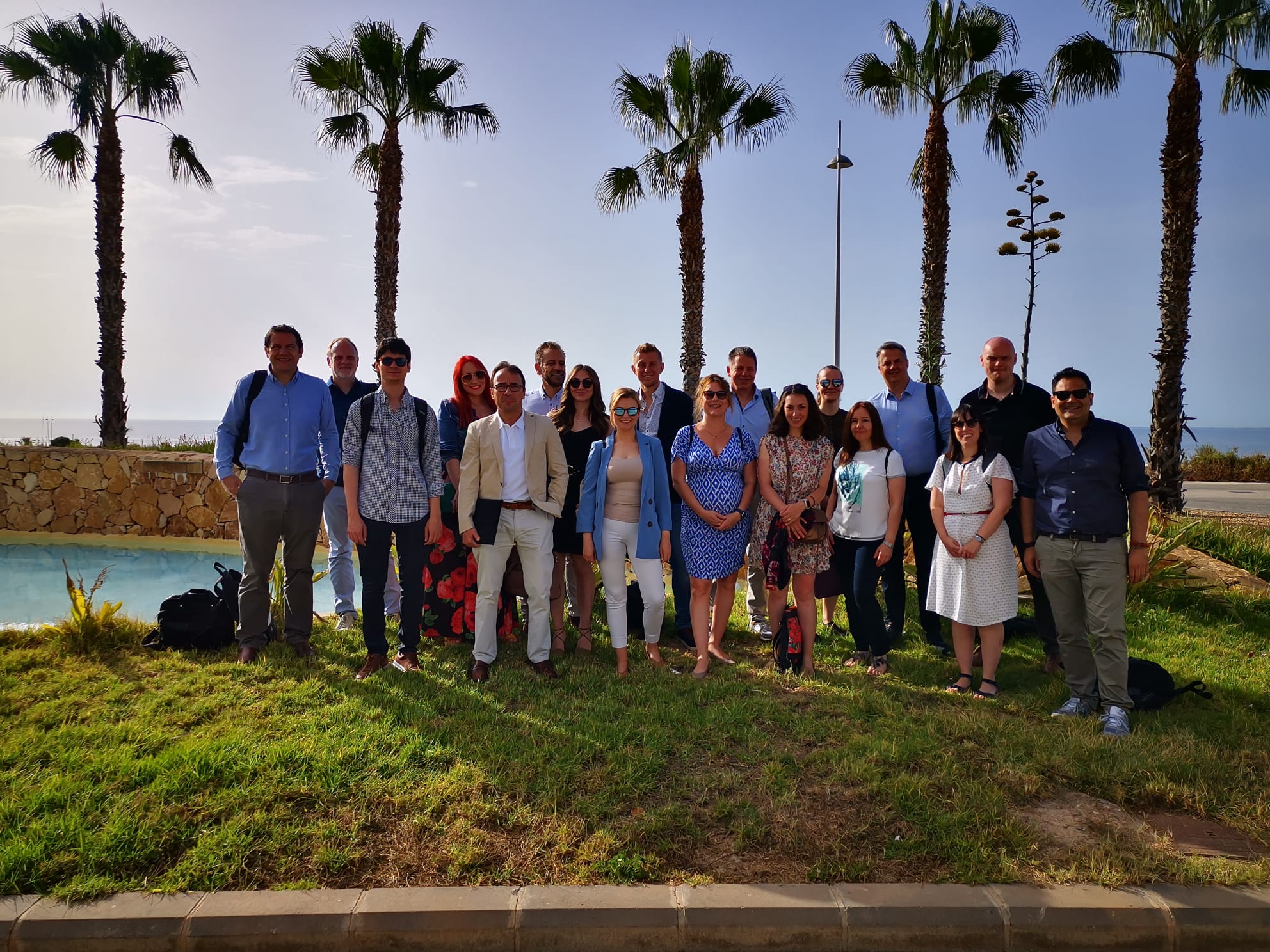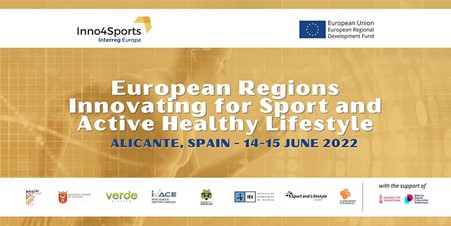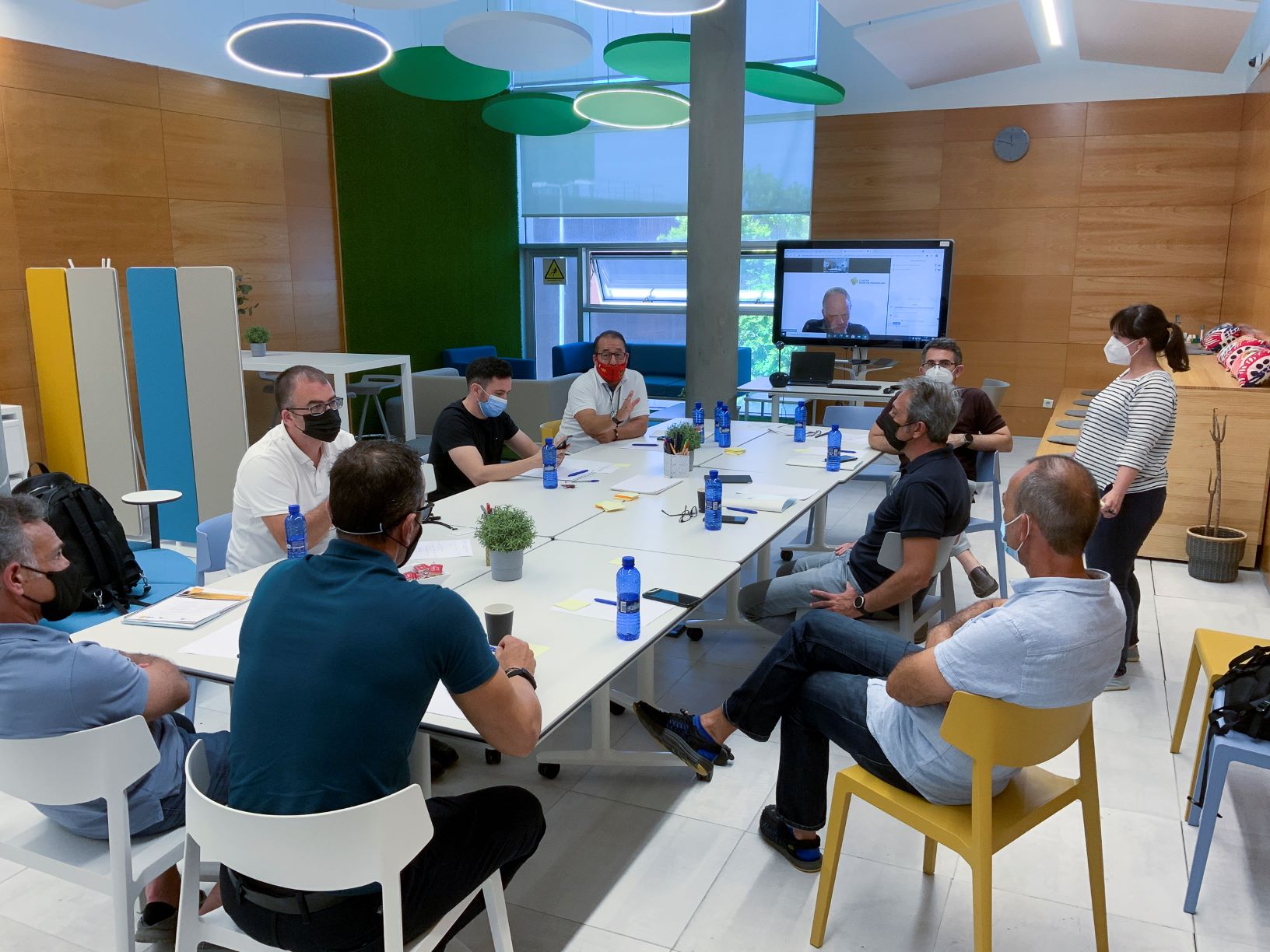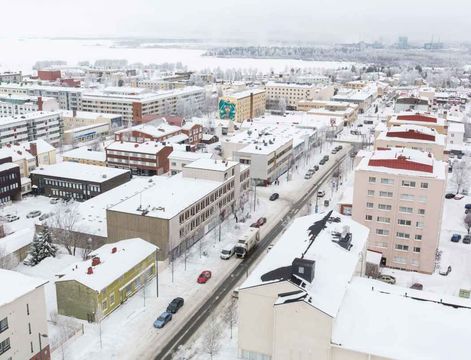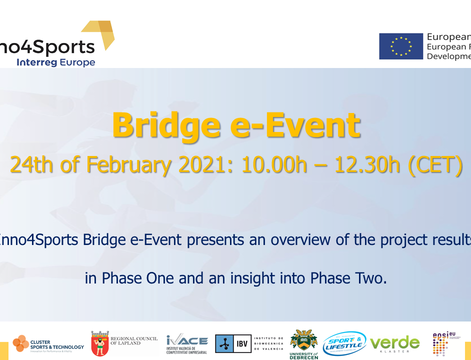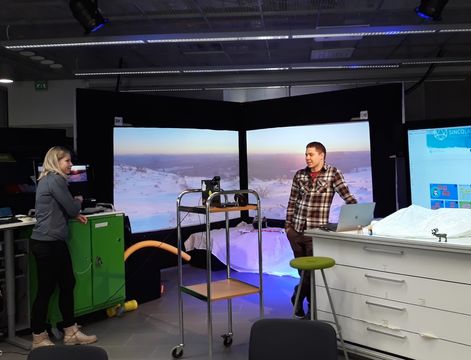Five Europeans regions joint forces to share their experience and knowledge in the field of innovation for sport and vitality. The Inno4Sports project aims to improve the performance of innovation clusters/regions around sport and vitality, that have emerged in various regions in the EU.
The economical importance of sports is shown best by research conducted by the European Commission. According to the conclusions of the study, the share of sport-related Gross Domestic Product within the EU is 2.12 % and amounts to € 279.7 bn. Furthermore, the share of sport-related employment amounts to 2.72 % of total EU employment, equivalent to 5.666.195 persons. Despite the economic and financial crisis between the two studies (data from 2005 and from 2012), the sport sector has continued to grow. Despite these figures, the economic and social impact of the sport-related industries is still often underestimated.
As in any other sector, innovation and business creation for sports and vitality is a vital asset in the professionalising and development of this growing sector. In recent years bottom-up innovation clusters around sport and vitality have emerged in various regions in the EU. The Inno4Sports project aims to improve the performance of these innovation clusters/regions in the field of sport and vitality and thus strengthen the economical output, to fight against inactivity and to stimulate a more vital society. The total project size is around €1.5 million and is supported from the Interreg Europe program.
Inno4Sports brings together five regions that all share the ambition to address a common objective. “We talk with local and regional authorities about the importance of sports and how innovations can help to get people a more active lifestyle. Together we share a similar ambition”, says Rene Wijlens, Cluster Manager at Sports and Technology Foundation in Eindhoven, Co-Executive Director of EPSI and project leader of the Inno4Sports project.
Five clusters from Spain, Hungary, Finland, Poland and the Netherlands work together under the name Inno4Sports. Rene: “We all think it’s important that sports is embedded better in regional policy. All the partners would like to put sports on the map in their region. Every region has its own expertise and experience which others can learn from. We try to understand what the excellence of a specific region is and connect the other clusters and regions in a complementary way. We don’t compete with each other, but we want to learn from each other.”
Regional action plans
Inno4Sports started 2018 and the project runs through 2022. The first phase of the project is to get a clear picture of the excellence of every region and develop for each region a regional action plan. In order to reach this goal Inno4Sports organised several Project Meetings, Interregional Exchanges (IE) and Knowledge Capitalization Seminars. “The biggest part of the project is to work on the regional action plans. The partners can inspire each other writing these plans. Everyone is ambitious and wants to do better”, says René.
“In South Netherlands, Valencia and Lapland innovation for sports and vitality has already played an increasing role in recent years. Poland and Hungary are in a different phase, but they’re both very ambitious and would like to secure the important role sports plays in society in regional policies. Together we look what we can do better and how we can help each other.”
Sports is a central point in politics
As the project’s advisory partner the European Platform for Sport Innovation (EPSI) can provide a strong dissemination platform and also bring the project’s findings to the attention of other regions and parties. “We help our members raise funds for projects, create opportunities for market access and talk with local and regional authorities about the importance of sports”, according to Alberto Bichi, Co-Executive Director of EPSI.
Both Alberto and René have been working in sports for a long time. They’ve seen first-hand that the importance of sports in our society has grown in recent years. “Sports is a central point in politics. The economic impact of sports is big. The sport sector isn’t affected by financial crisis and the sector is always progressing and in development. But sports also plays a role in social elements, such as integration of refugees. It even has a diplomatic role, as was shown during the 2018 Olympics when North and South Korea joined forces to compete under the same flag”, says Alberto.
René adds to this: “The role sports can play for society is still underestimated and not very well secured yet in policy. We would like to change that and make sure sports is an important part of policy on a regional level in Europe.”


